When my five-year-old son, Eli, offered a struggling mailman a glass of water on that scorching Tuesday afternoon, I thought it was just a fleeting, sweet moment. The kind of moment that passes and leaves only a warm memory behind. But the next day, a red Bugatti pulled up in front of his preschool, and everything I thought I knew about kindness, wealth, and the ripple effect of simple gestures was challenged in the most unexpected way. The heat that day was relentless, the kind that made you question if stepping outside was worth the effort at all.
I sat on our sunbaked porch, sipping sweet tea from a tall glass, watching Eli crouched low, chalk in hand, drawing dinosaurs that seemed larger than life across the concrete driveway. The sunlight glinted off his damp curls, sticking to his flushed cheeks, while the neighborhood simmered in the heavy air. “Mom,” Eli called, tilting his head up with those wide, observant eyes that always seemed older than his five years, “why’s that man walking funny?” I followed his gaze down the street. A mailman I didn’t recognize trudged slowly along the curb, each step deliberate, weighed down as though gravity had doubled overnight. His uniform, soaked through with sweat, clung to his body.
His leather mailbag sagged heavily on one shoulder, swinging with each labored stride. He paused every few houses, one hand pressed against his lower back, and a low, tired sigh escaped his lips. He could not have been older than sixty. Streaks of gray ran through his hair beneath the standard-issue cap, and his face, flushed from the unforgiving heat, carried the faint crease of years spent laboring outdoors. A mix of determination and exhaustion made him move like a man carrying both the mail and the weight of the world. I assumed he was filling in for a regular route that had called in sick—I’d never seen him before in our neighborhood.
“He’s just tired, honey,” I said softly. “It’s really hot today.” Eli, however, was unsatisfied. He straightened up, chalk still in hand, his gaze fixed firmly on the man. Across the street, Mrs. Lewis stood beside her gleaming SUV, arms crossed, letting her voice carry like a sharpened blade. “Good Lord, I’d die before I let my husband do a job like that at his age. Doesn’t he have any self-respect?” Her friend chuckled. “Honestly, he looks like he’s about to keel over right there on someone’s lawn. Maybe someone should call an ambulance before he does.”
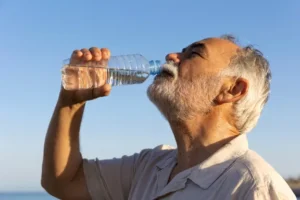
The mailman’s shoulders tensed, but he kept moving, head down, as if acknowledging them in any way would only make the encounter heavier. Two doors down, Mr. Campbell, our retired dentist, leaned casually against his garage door, smirking. “Hey there, buddy! You might want to pick up the pace a little. Mail doesn’t deliver itself, you know!” A group of teenagers pedaled by, laughing carelessly. One lanky boy muttered, “Bet he couldn’t afford to retire. That’s what happens when you don’t plan ahead.” Another snickered. “My dad says people like that made bad choices. That’s why they’re stuck doing grunt work.”
My chest twisted with a pang of discomfort. These were neighbors—people we smiled at, waved to, shared block parties with. And here they were, dismissing him, mocking him, making him invisible. Eli’s small hand sought mine. “Mom, why are they being so mean? He’s just trying to do his job.” My throat tightened. “I don’t know, baby. Some people forget what it means to be kind.”
The mailman finally reached our driveway, breathing heavily, sweat dripping down his neck. He gave me a weak, polite smile. “Afternoon, ma’am. Got your electric bill and some catalogs today.” His voice was hoarse, dry, almost fragile. His hands trembled slightly as he reached into his bag. Before I could respond, Eli leapt to his feet. “Wait here, Mom!” He bolted inside, sneakers squeaking on the floor. I heard the refrigerator open, cabinets close, and small clatters from the kitchen. The mailman looked confused. “Everything alright?” he asked, faint concern in his voice.
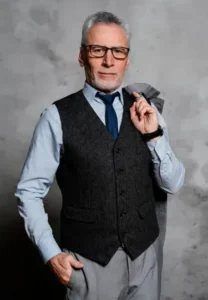
“Uh, yes,” I said, though uncertainty lingered in my chest. Moments later, Eli returned, a Paw Patrol cup in hand, condensation already sliding down its sides, filled to the brim with ice water. Under his other arm was a chocolate bar, usually jealously guarded. “Here, Mr. Mailman,” he said, extending the cup with both hands. “You look really thirsty and hot.” The mailman blinked, astonished. For a moment, he stared at the cup as if it were a rare treasure. “Oh, buddy… that’s so kind of you, but you don’t have to—”
“It’s okay,” Eli interrupted, insistently. “Mom says when someone’s working hard, they deserve a break. You’ve been walking a long time.” The man’s eyes glistened. He took the cup with both hands, drinking slowly, reverently. When he unwrapped the candy, he ate it with care, as though each bite reminded him of something he’d almost forgotten. Then, kneeling to Eli’s height, he asked, “What’s your name, champ?” “Eli.” “You go to school, Eli?” “Yeah! Sunshine Preschool, just two blocks that way. We’re learning about dinosaurs this week.”
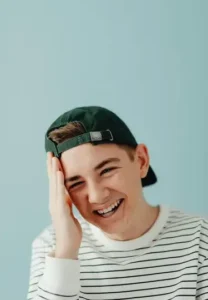
The man smiled genuinely this time, a warmth spreading from his eyes to his face. “That’s wonderful. You just made my day—maybe even my whole year.” He straightened, tipping his hat. “Thank you, ma’am. He’s a fine boy, and thank you, Eli.” That evening, Eli couldn’t stop talking about the mailman. He drew pictures, crayon wings sprouting from the postal worker’s back, labeling him a superhero. “Mom, he doesn’t wear a cape, but he’s a hero.” The following afternoon, when we picked Eli up from preschool, a bright red car gleamed at the end of the street. As we drew closer, I realized it was a Bugatti, impossibly sleek and loud with quiet confidence, a rare jewel against the mundane backdrop of minivans and sedans.
Out stepped the mailman—no uniform, no sagging bag. He was dressed in a crisp suit, silver hair slicked back. The exhaustion of the day before vanished, replaced by an aura of ease and quiet authority. Eli gasped. “Mom! It’s him!” He approached us, smiling warmly. “Hello again,” he said. He crouched to speak to Eli, presenting a small velvet box. Inside was a tiny red metal car—a miniature of the Bugatti behind him. “I used to collect these when I was your age,” he said gently. “Your kindness reminded me why small acts matter. This is for you.” Eli’s eyes widened. “This is the coolest thing ever!”
Then he revealed the truth: he was not a mailman anymore. He had built a business, grown wealthy, and now ran a foundation supporting delivery workers and their families. Every summer, he walked a route to remember what it felt like. And yesterday, Eli had reminded him of something essential: humanity. Two weeks later, we received an envelope with no return address, containing a check for $25,000 and a simple note:
“Dear Eli, Thank you for reminding an old man what goodness looks like. This is for your future… college, adventures, or helping someone else as you helped me. Pay it forward. With gratitude, Jonathan.” We set up a college savings account in Eli’s name and didn’t tell him the details. But the lesson was already engraved: kindness matters, small gestures ripple outward, and the richest hearts are often found in the smallest acts. Eli’s drawings, toy cars, and glass of water had changed a life—and reminded me that legacy isn’t always about wealth, but about compassion.
“More cups it is,” I whispered to Mark, squeezing his hand. “Always more cups.”
When my five-year-old son, Eli, offered a struggling mailman a glass of water on that scorching Tuesday afternoon, I thought it was just a fleeting, sweet moment. The kind of moment that passes and leaves only a warm memory behind. But the next day, a red Bugatti pulled up in front of his preschool, and everything I thought I knew about kindness, wealth, and the ripple effect of simple gestures was challenged in the most unexpected way. The heat that day was relentless, the kind that made you question if stepping outside was worth the effort at all.
I sat on our sunbaked porch, sipping sweet tea from a tall glass, watching Eli crouched low, chalk in hand, drawing dinosaurs that seemed larger than life across the concrete driveway. The sunlight glinted off his damp curls, sticking to his flushed cheeks, while the neighborhood simmered in the heavy air. “Mom,” Eli called, tilting his head up with those wide, observant eyes that always seemed older than his five years, “why’s that man walking funny?” I followed his gaze down the street. A mailman I didn’t recognize trudged slowly along the curb, each step deliberate, weighed down as though gravity had doubled overnight. His uniform, soaked through with sweat, clung to his body.
His leather mailbag sagged heavily on one shoulder, swinging with each labored stride. He paused every few houses, one hand pressed against his lower back, and a low, tired sigh escaped his lips. He could not have been older than sixty. Streaks of gray ran through his hair beneath the standard-issue cap, and his face, flushed from the unforgiving heat, carried the faint crease of years spent laboring outdoors. A mix of determination and exhaustion made him move like a man carrying both the mail and the weight of the world. I assumed he was filling in for a regular route that had called in sick—I’d never seen him before in our neighborhood.
“He’s just tired, honey,” I said softly. “It’s really hot today.” Eli, however, was unsatisfied. He straightened up, chalk still in hand, his gaze fixed firmly on the man. Across the street, Mrs. Lewis stood beside her gleaming SUV, arms crossed, letting her voice carry like a sharpened blade. “Good Lord, I’d die before I let my husband do a job like that at his age. Doesn’t he have any self-respect?” Her friend chuckled. “Honestly, he looks like he’s about to keel over right there on someone’s lawn. Maybe someone should call an ambulance before he does.”
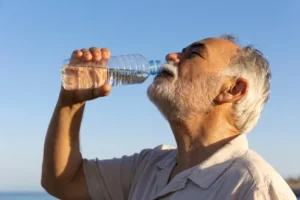
The mailman’s shoulders tensed, but he kept moving, head down, as if acknowledging them in any way would only make the encounter heavier. Two doors down, Mr. Campbell, our retired dentist, leaned casually against his garage door, smirking. “Hey there, buddy! You might want to pick up the pace a little. Mail doesn’t deliver itself, you know!” A group of teenagers pedaled by, laughing carelessly. One lanky boy muttered, “Bet he couldn’t afford to retire. That’s what happens when you don’t plan ahead.” Another snickered. “My dad says people like that made bad choices. That’s why they’re stuck doing grunt work.”
My chest twisted with a pang of discomfort. These were neighbors—people we smiled at, waved to, shared block parties with. And here they were, dismissing him, mocking him, making him invisible. Eli’s small hand sought mine. “Mom, why are they being so mean? He’s just trying to do his job.” My throat tightened. “I don’t know, baby. Some people forget what it means to be kind.”
The mailman finally reached our driveway, breathing heavily, sweat dripping down his neck. He gave me a weak, polite smile. “Afternoon, ma’am. Got your electric bill and some catalogs today.” His voice was hoarse, dry, almost fragile. His hands trembled slightly as he reached into his bag. Before I could respond, Eli leapt to his feet. “Wait here, Mom!” He bolted inside, sneakers squeaking on the floor. I heard the refrigerator open, cabinets close, and small clatters from the kitchen. The mailman looked confused. “Everything alright?” he asked, faint concern in his voice.
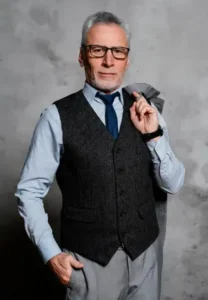
“Uh, yes,” I said, though uncertainty lingered in my chest. Moments later, Eli returned, a Paw Patrol cup in hand, condensation already sliding down its sides, filled to the brim with ice water. Under his other arm was a chocolate bar, usually jealously guarded. “Here, Mr. Mailman,” he said, extending the cup with both hands. “You look really thirsty and hot.” The mailman blinked, astonished. For a moment, he stared at the cup as if it were a rare treasure. “Oh, buddy… that’s so kind of you, but you don’t have to—”
“It’s okay,” Eli interrupted, insistently. “Mom says when someone’s working hard, they deserve a break. You’ve been walking a long time.” The man’s eyes glistened. He took the cup with both hands, drinking slowly, reverently. When he unwrapped the candy, he ate it with care, as though each bite reminded him of something he’d almost forgotten. Then, kneeling to Eli’s height, he asked, “What’s your name, champ?” “Eli.” “You go to school, Eli?” “Yeah! Sunshine Preschool, just two blocks that way. We’re learning about dinosaurs this week.”
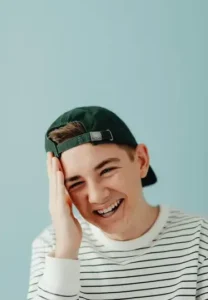
The man smiled genuinely this time, a warmth spreading from his eyes to his face. “That’s wonderful. You just made my day—maybe even my whole year.” He straightened, tipping his hat. “Thank you, ma’am. He’s a fine boy, and thank you, Eli.” That evening, Eli couldn’t stop talking about the mailman. He drew pictures, crayon wings sprouting from the postal worker’s back, labeling him a superhero. “Mom, he doesn’t wear a cape, but he’s a hero.” The following afternoon, when we picked Eli up from preschool, a bright red car gleamed at the end of the street. As we drew closer, I realized it was a Bugatti, impossibly sleek and loud with quiet confidence, a rare jewel against the mundane backdrop of minivans and sedans.
Out stepped the mailman—no uniform, no sagging bag. He was dressed in a crisp suit, silver hair slicked back. The exhaustion of the day before vanished, replaced by an aura of ease and quiet authority. Eli gasped. “Mom! It’s him!” He approached us, smiling warmly. “Hello again,” he said. He crouched to speak to Eli, presenting a small velvet box. Inside was a tiny red metal car—a miniature of the Bugatti behind him. “I used to collect these when I was your age,” he said gently. “Your kindness reminded me why small acts matter. This is for you.” Eli’s eyes widened. “This is the coolest thing ever!”
Then he revealed the truth: he was not a mailman anymore. He had built a business, grown wealthy, and now ran a foundation supporting delivery workers and their families. Every summer, he walked a route to remember what it felt like. And yesterday, Eli had reminded him of something essential: humanity. Two weeks later, we received an envelope with no return address, containing a check for $25,000 and a simple note:
“Dear Eli, Thank you for reminding an old man what goodness looks like. This is for your future… college, adventures, or helping someone else as you helped me. Pay it forward. With gratitude, Jonathan.” We set up a college savings account in Eli’s name and didn’t tell him the details. But the lesson was already engraved: kindness matters, small gestures ripple outward, and the richest hearts are often found in the smallest acts. Eli’s drawings, toy cars, and glass of water had changed a life—and reminded me that legacy isn’t always about wealth, but about compassion.
“More cups it is,” I whispered to Mark, squeezing his hand. “Always more cups.”



